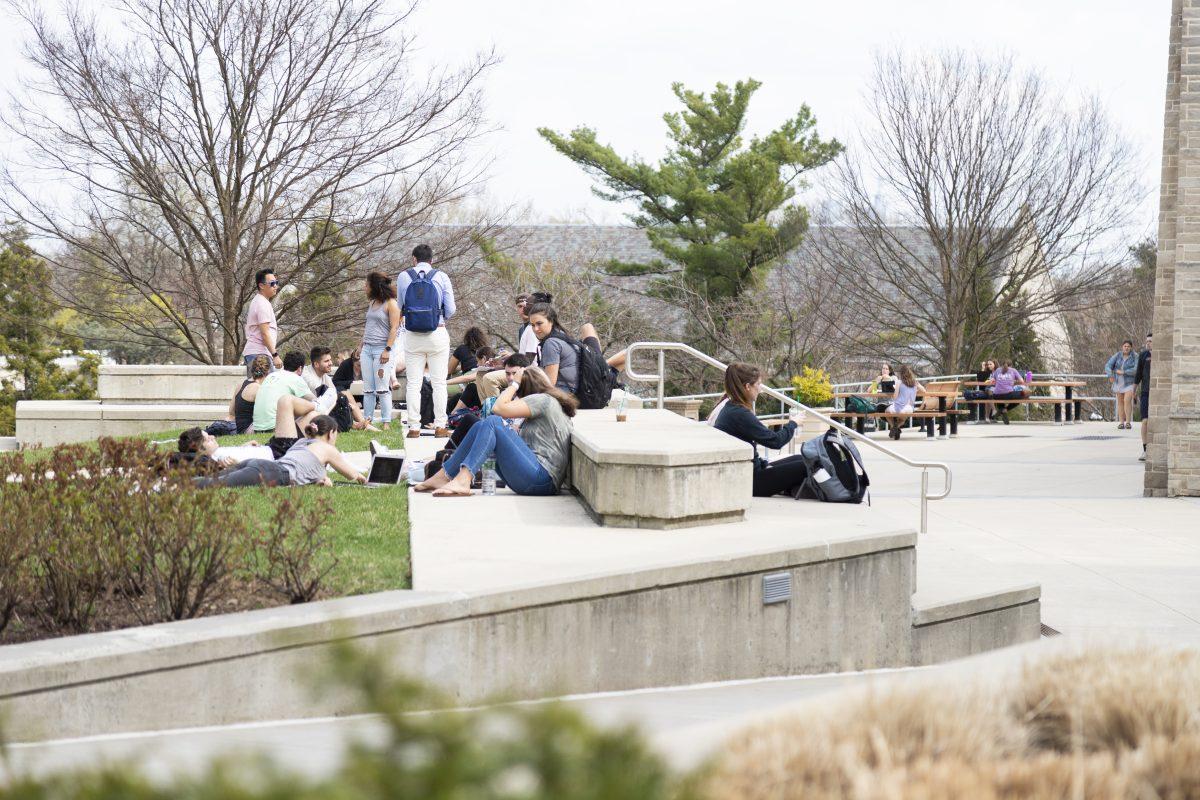New plan to bridge the gap for first-gen students
The Office of Student Transitions (OST) and the Office of Teaching and Learning (OTL) have partnered to start a new initiative to connect current first-generation St. Joe’s students with faculty who also identify as first-generation college students.
Nancy Komada, director of the OST, who lead the initiative, said she is passionate about understanding the challenges first-generation college students face, in part because of a research project she began in graduate school.
“I correlated first-generation college student with resiliency,” Komada said. “It was my thought that you would have to be pretty damn resilient to make it through four-year program without a whole lot of support systems.”
Usha Rao, director of the OTL, who is collaborating with Komada, said many faculty members from different ranks and disciplines responded quickly to her request for first-generation faculty mentors to volunteer for the initiative.
“I think their stories and experiences will be inspirational but also of practical benefit to our students,” Rao said.
Komada said she has heard from 38 faculty members and hopes the new initiative will include faculty-student mentorship in the form of a revamped “connector program.” This program will give first generation college students and other “transitional” students guidance before they arrive on campus.
“The connector program used to be for all students, and now it’s just for the transition students, so we can give them a better connection early on,” Komada said. “Whereas other students might have parents getting them ready for August and the first day of classes.”
Both Rao and Komada said that mentorship of first-generation college students is necessary for college success, and the goal of the new initiative is to provide students with that guidance.
“The mentoring that first-gen students need from faculty members may not happen organically,” Rao said. “Students don’t always know which of their faculty members are first-gen, so the university has to act deliberately to put these mentorship programs into place.”
Maria Kefalas, Ph.D., professor of sociology, has conducted research on first-generation college students and said she has found that although college is supposed to be an equalizer for young people, it is often a challenge for first-generation college students.
“Staying in [school], succeeding, making the most of your four years, that’s the hard part,” Kefalas said. “And you need a lot of insider knowledge and mentorship to optimize those four years. To have them work with a mentor that is really going to guide them, that works with them from the very first day they get to campus”
Kefalas said that better mentoring and intensive guidance for first-generation college students is needed to help students stay in college. She said she hopes the initiative helps serve first-generation student’s greatest need – staying in college.
“I hope [the initiative] helps make higher education what it’s supposed to be, which is this transformative experience that opens up opportunities for young people,” Kefalas said.
Komada said she hopes the initiative will help first-generation students throughout their college careers and ultimately help them reach graduation. Her advice to first-generation students is that they should see the journey to the graduation stage as long and with different obstacles, but also with many resources to help them get there.
“Use the resources or come to us to get the resources,” Komada said. “We don’t know what you need unless you tell us, but it is so worth making it to that graduation stage, because you will be able to get through a brick wall after that.”













































